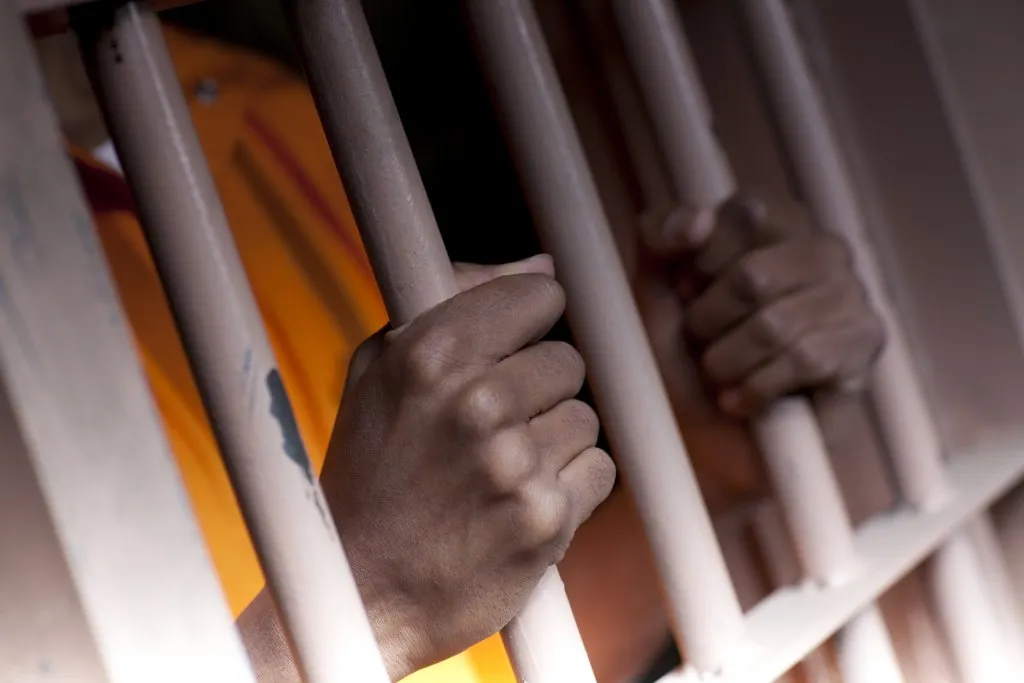By Deena Winter, Minnesota Reformer
On the heels of an election when Republicans pounded Democrats for being soft on crime, the DFL-controlled Minnesota Legislature passed a raft of legislation this year that could result in scores of people being released from prison sooner; shorter terms of probation or community supervision; erasure of some aiding and abetting felony convictions and reduction in sentences of others; and easier expungement of certain non-violent crimes.
They also legalized marijuana, as well as possession of drug paraphernalia even if it has drug residue. They made it easier to get clemency. They put historic investment into community violence prevention grants, while also giving $300 million to cities and counties to spend on public safety as they see fit.
Republicans criticized some of the proposals as dangerous “get out of jail free” bills that “coddle criminals” and take money from law enforcement and give it to unaccountable nonprofits. Democrats say their proposals are backed by solid social science, such as studies showing how Minnesota’s criminal justice system has disparately affected communities of color.
Many provisions are aimed at preparing prisoners for their release, making it easier for prisoners and former prisoners to get jobs, housing and education — all key factors in reducing recidivism.
Former New York Police Department Sgt. Keith Taylor, instructor at John Jay College of Criminal Justice, said the key is to set metrics to see whether the programs are working.
Democrats say ideas that may seem generous to people who have committed crimes have been tested elsewhere. For example, the public safety budget bill includes $3.1 million in annual funding to make phone calls free for prisoners, with the goal of keeping them connected to the outside world.
Taylor said the stronger a person’s ties to a community, the less likely they’ll end up back in prison. There are a lot of variables, however, he said, such as the type of crime they committed and whether they also have similar support when they get home. The most successful programs address people’s problems when they’re released, especially housing and employment.
Taylor said probation and other community supervision programs need the resources to make sure people don’t fall back into crime when they hit road bumps.
“Parole and probation generally are underfunded and overworked,” he said.
House public safety committee chair, Rep. Kelly Moller, DFL-Shoreview, said the legislation invests in innovative strategies to break cycles of violence and builds trust in the criminal justice system — which is “failing on many levels.” If people don’t trust the system, victims don’t report crimes, witnesses don’t come forward and juries don’t trust the process, she said.
The most important thing is to follow the success or failure of those new programs by looking at data, Taylor said.
“Ultimately, you have to make people safer with your efforts,” Taylor said. “If you make people more vulnerable to crime as a result of changes you made in criminal justice laws, there may be a political price to pay for that.”
Get out of prison, but not for free
Lawmakers and the administration of Gov. Tim Walz plan to make the corrections system more rehabilitative and less punitive.
The Minnesota Rehabilitation and Reinvestment Act allows prisoners to get out earlier and shortens their community supervision if they participate in rehabilitation programs tailored to their needs, like mental health and substance use disorders. Thirty-eight other states have similar “earned release” policies.
In Minnesota, people serve two-thirds of their sentence in prison and one-third on supervised release, regardless of whether they sought help while inside. Under the legislation, prisoners will be eligible to get out when half their sentence has been served if they complete programs and behave well in prison.
Five-year probation cap
Minnesota prefers to put people on probation rather than put them in jail; average probation terms are longer than the average prison term, with state law allowing up to 40-year probation terms.
Lawmakers passed a bill limiting probation to five years for most felonies — except for homicides and sex crimes — as already enacted by the Minnesota Sentencing Guidelines Commission in 2020. A major difference: The bill’s probation limits would be applied retroactively.
A recent Prison Policy Initiative report said Minnesota has fewer people in prison than the national average but ranks “among the most punitive in the nation when you look at its full system of correctional control.”
About 8,000 people are in prison, but 82,000 people are on probation. Minnesota has a larger share of its population in the corrections system than Alabama, although a Minnesota resident is far less likely to be incarcerated.
About one-fourth of state prisoners are there because they violated the terms of their probation or supervised release.
Getting a clean slate
The Clean Slate Act will make it easier for people to clear their record of certain non-violent crimes, so it’s easier for them to get jobs, housing and an education.
The state has had a petition-based process to clear a criminal record since 2014, but a University of Minnesota study found only about 5% of Minnesotans eligible for expungement went through the process.
Rather than having a prosecutor go through a court process to remove records of convictions, the legislation sets up an automatic expungement process.
House Majority Leader Jamie Long, DFL-Minneapolis, sponsored the bill, saying people should have a chance at redemption after paying their debt to society.
Aiding and abetting
The bill limits cases in which people can be convicted of aiding and abetting two types of felony murder.
This is meant for people who are more like bystanders but got caught up in murder prosecutions — such as a person unwittingly sitting in what turns out to be a getaway car.
Aiding and abetting laws have long been controversial internationally because a person can be punished for murder without ever intending to kill — or even harm — someone.
The bill is retroactive, so people in prison could have their sentences reduced or erased, and those who have already served their time could have the convictions cleared from their record.
The bill is the culmination of a 2021 bipartisan task force that examined Minnesota’s aiding and abetting felony murder laws, which disproportionately affect Black people.
Legalizing drug paraphernalia
Lawmakers legalized possession of drug paraphernalia and any leftover drug residue. The bill also allows community-based public health programs to provide sterile needles, syringes and other injection equipment while educating people on overdose prevention and safe injection practices.
Sen. Clare Oumou Verbeten, DFL-St. Paul, said as a Black woman and the daughter of an immigrant, she was honored to champion reforms of laws that have disproportionately harmed people of color.
Taylor, of John Jay School, said every step of the criminal justice process places extra burdens on people based on their race and class. Taylor said 30 years ago, he was an undercover narcotics officer buying crack in the Bronx, a foot soldier in the War on Drugs.
“I thought I was doing a good job,” he said. “As a police officer, I would not know the policies — whether intended to or not — had the effect of filling up prisons with young men from these poor Black and brown communities.”
Alternative approaches to public safety
The public safety bill includes $70 million in one-time funds spread over five years for community violence prevention grants.
DFL leaders said the grants will go toward programs that address the root causes of crime with new approaches and alternatives to conventional policing. Money will go to groups that support gun violence victims, prison reentry programs, homelessness assistance, neighborhood watch programs, faith-based projects, restorative justice, violence interrupters and juvenile diversion.
The grants will be distributed by the Office of Justice Programs in the Department of Public Safety.
Lawmakers also budgeted $10 million to improve the training and availability of non-police crisis response teams.
Republicans largely focused skepticism on “violence interrupters” — nonprofit groups that try to intervene and stop the cycle of retribution in high-crime areas. They’re often staffed by ex-gang members and former prisoners.
Taylor said it’s important to include strong accountability measures in such programs.
“If you simply spend money on violence interrupters and then you’re not able to justify their continued existence, that becomes easy prey for your political opponent,” he said.
Police don’t have a lot of faith in former prisoners — and sometimes things go awry with the programs.
“If they still have valid ties to criminal entities, what you’re essentially doing is putting a fox in charge of the henhouse,” he said. “They’re authentic voices but you don’t want them to end up defeating the whole purpose of the programs by continuing in criminality, using their positions to recruit new members for their gang, for instance.”
Lower bar for clemency
The legislation also makes changes to the Board of Pardons, comprising the governor, attorney general and chief justice of the Minnesota Supreme Court.
A unanimous vote from the board will no longer be required for people seeking clemency. Instead, two out of the three board members would have to approve pardons or commutations of convictions.
Minnesota is the only state that requires a unanimous vote, which supporters of the bill said is overly strict and prevents deserving candidates from getting a second chance. The chief justice was appointed by a Republican, and sometimes blocks pardons.
The legislation also creates a commission to review a burgeoning number of pardon requests and make recommendations to the board.
An extra $300 million for public safety
The Legislature also passed the governor’s public safety proposal, via a separate tax bill, that will send $300 million to every city, county and tribal nation.
Local officials will have the flexibility to decide how to spend the money — whether for mental health crisis response teams or to hire more cops.
But it takes more than police to reduce crime, Taylor said.
Around the world, lower income inequality is associated with lower levels of economic crime.
“But where you have strong income inequity, where a lot of resources are focused on a small percentage of the population, you have higher poverty and have more efforts to make money by any means necessary,” Taylor said.
Minnesota Reformer is part of States Newsroom, a network of news bureaus supported by grants and a coalition of donors as a 501c(3) public charity. Minnesota Reformer maintains editorial independence. Contact Editor Patrick Coolican for questions: info@minnesotareformer.com. Follow Minnesota Reformer on Facebook and Twitter.




